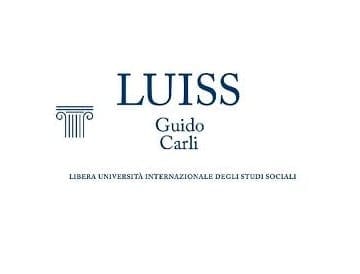The international conference on civil aviation, organized by the Luiss School of Law, was held at the Luiss “Guido Carli” University, Rome. The theme of the event was “Creating Legal Gateways in the Italian, European and International Aviation Market.”
The event was hosted by Laura Pierallin – a coordinator of the course in Air Transport Law and professor at Luiss, one of the leading experts in the civil aviation sector.
The event, divided into four panels, was attended by the most important players in the industry from over 70 countries, as well as internationally renowned lawyers and representatives of European and international authorities, universities and air carriers.
The aim of the conference was to examine the status of the air transport market, both national and international, and in particular find out, on one hand, the factors that led to the recent corporate crises affecting numerous companies and, on the other hand, understanding the effective extent of the main changes that have enriched the regulatory framework of the air sector, with particular reference to the protection of passengers and privacy.
In the first and second panels the speakers analyzed the corporate crisis that has recently hit many companies, sharing their vision of how the aviation industry can face economically sustainable costs, and develop the best strategies to attract investments, the lack of which was one of the main causes of the crisis.
Corporate crisis appears to be a paradox, especially if compared with the constant growth in the number of passengers (+ 6.2% in 2017) and the increase in orders placed for the purchase of new aircraft.
Among the protagonists of the first panel were Alessio Quaranta (General Manager Enac, National Agency of Civil Aviation) and Ivan Bassato (Director Airport Management of Aeroporti di Roma).
The second panel was hosted by Fathi Acts (Senior Vice President – Aeropolitical & Corporate Affairs of Qatar Airways) and Jörg Meinke (representative of the Lufthansa Group’s European affairs), among others.
The third and fourth panels saw the speakers addressing topical issues, such as the consequences of the advent of the “Brexit” on the European market, the increasingly innovative use of drones, the immense increase in requests for compensation from the passengers, as well as the main regulatory changes that have increased the level of protection of passengers and their privacy.
In particular, the fourth panel was entirely dedicated to the state of adaptation and implementation of the European Regulation for the protection of personal data (Gdpr), which came into force on 25 May 2018, with a focus on the collection and management of data by the companies, as well as on the best compliance strategies to be put in place to avoid sanctions or damage to reputation as a consequence of the failure to comply with the new provisions.
The lawyer Pierallini concluded the conference by offering a valuable food for thought, addressed the decision makers, on the different and contradictory signs that emerged during the day (company crisis and lack of investment but impressive growth in the number of passengers and consequent increase in orders for new aircraft): “In examining these signals, it is necessary to learn from the past, that increasing the level of regulation in the sector may not be the key to revitalizing and making the aviation industry sustainable”.
WHAT TO TAKE AWAY FROM THIS ARTICLE:
- In particular, the fourth panel was entirely dedicated to the state of adaptation and implementation of the European Regulation for the protection of personal data (Gdpr), which came into force on 25 May 2018, with a focus on the collection and management of data by the companies, as well as on the best compliance strategies to be put in place to avoid sanctions or damage to reputation as a consequence of the failure to comply with the new provisions.
- The aim of the conference was to examine the status of the air transport market, both national and international, and in particular find out, on one hand, the factors that led to the recent corporate crises affecting numerous companies and, on the other hand, understanding the effective extent of the main changes that have enriched the regulatory framework of the air sector, with particular reference to the protection of passengers and privacy.
- In the first and second panels the speakers analyzed the corporate crisis that has recently hit many companies, sharing their vision of how the aviation industry can face economically sustainable costs, and develop the best strategies to attract investments, the lack of which was one of the main causes of the crisis.






















